Vampyr review: Destined to be a cult classic - thompsonmoseve
Vampyr is bound to Be a cult classic. It will find a following, and that succeeding is going to make up incredibly passionate close to IT. They wish play and replay it, mapping extinct every the various points where its characterization of London changes, experimenting with the sandbox Dontnod created. Information technology's a Immoderate Cry 2, an Alpha Protocol, a Planescape: Dun, a Stalker, an Aeonian Swarthiness—or, most obviously, a Vampire: The Masquerade costume – Bloodlines.
What I mean is: Vampyr ($50 on Humble) is fundamentally flawed in myriad small, annoying ways. It's sometimes a chore to play. It's over-ambitious and under-executed. And so far every time you're feeling ready and waiting to resign on this uncharacteristic RPG, information technology does something and then surprising, so daring, you're almost tempted to forgive it.
Take a prick impermissible of law-breaking
Vampyr hinges on London. The city is No plain backdrop, it's the main character.
Non that you play as a city, course. You play A Dr. Jonathan Reid, respected physician, expert on rake transfusions, and warhorse fight medic newly returned from World War I to his native GB. Vampyr kicks away with Reid's destruction, or sort o his rebirth—crawling from a mass grave, teetering down an embankment, sinking his teeth into the first neck He sees. The titular vampire of Vampyr.
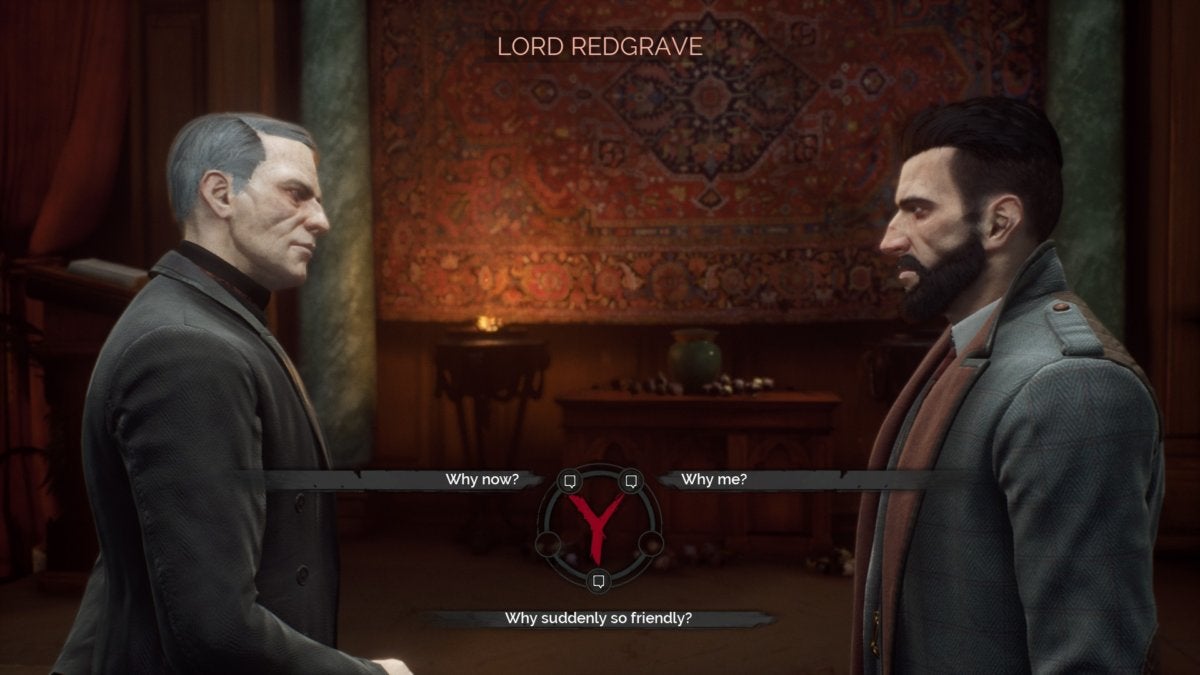 IDG / Hayden Dingman
IDG / Hayden Dingman Reid is a quite small part of a very large taradiddle though. Victimization the 1918 Spanish Flu epidemic every bit its inspiration, Vampyr depicts a London under seige—aside disease, away excruciating class divisions, by impending social reforms. This is London with one foot in the Devil earned run average, unitary foot in modernity.
And the people of London reflect that carve up. A suffragette, calling out for vote equality connected the turning point. London's "Unaccompanied Gourmet," a man WHO generally talks about the West Closing's food (patc sporting a ridiculous mustache). The mysterious Ascalon Club, a secret gild of sharp-class vampires who claim to rein Britain from the shadows. Your fellow doctors at Pembroke Infirmary, pressed to treat as many patients as they can with the narrow resources left after the war. Clay Cox, local ruffian and lesser-time criminal.
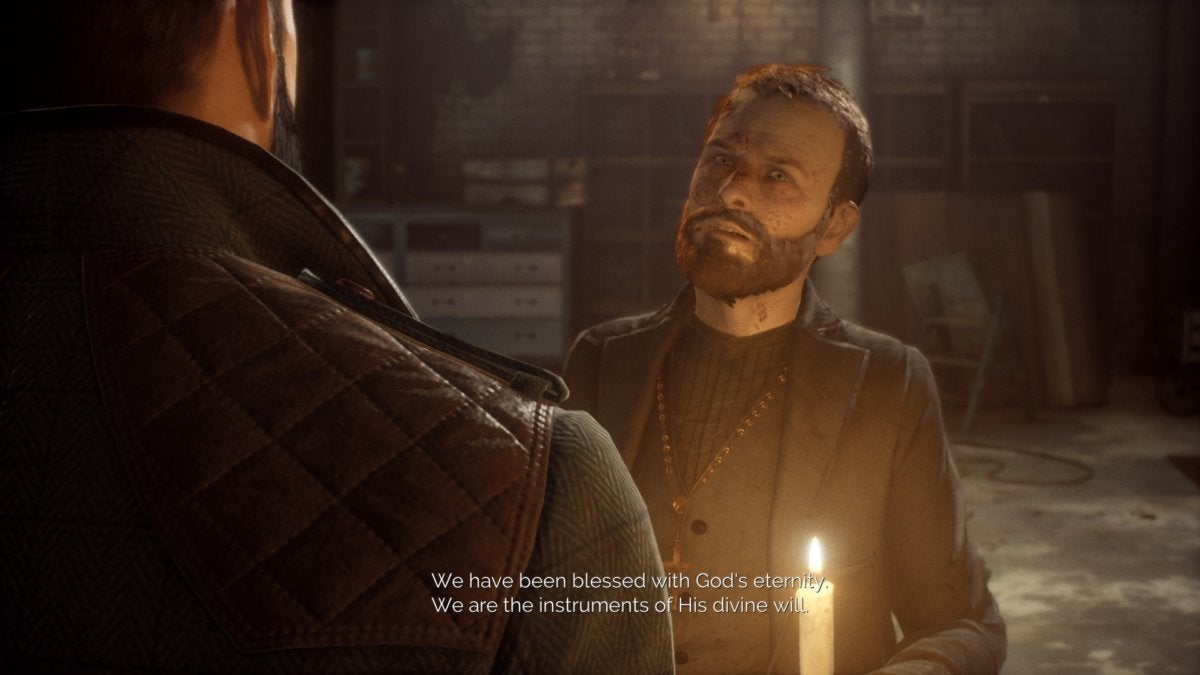 IDG / Hayden Dingman
IDG / Hayden Dingman I could name you a staggering bi of characters from Vampyr, in parting because in that respect are thus beshrew many, but also because they're often so healed-written. Tied the most prototypal of characters often has a handful of secrets in store, an interesting little side story to uncover if you're willing to put under in the time.
This vast and often overwhelming cast is paint to Vampyr. There are four main districts: Pembroke Hospital, White Chapel, The Docks, and the West End. The story trots you through all four, though you're free to search or to give to old areas pro re nata.
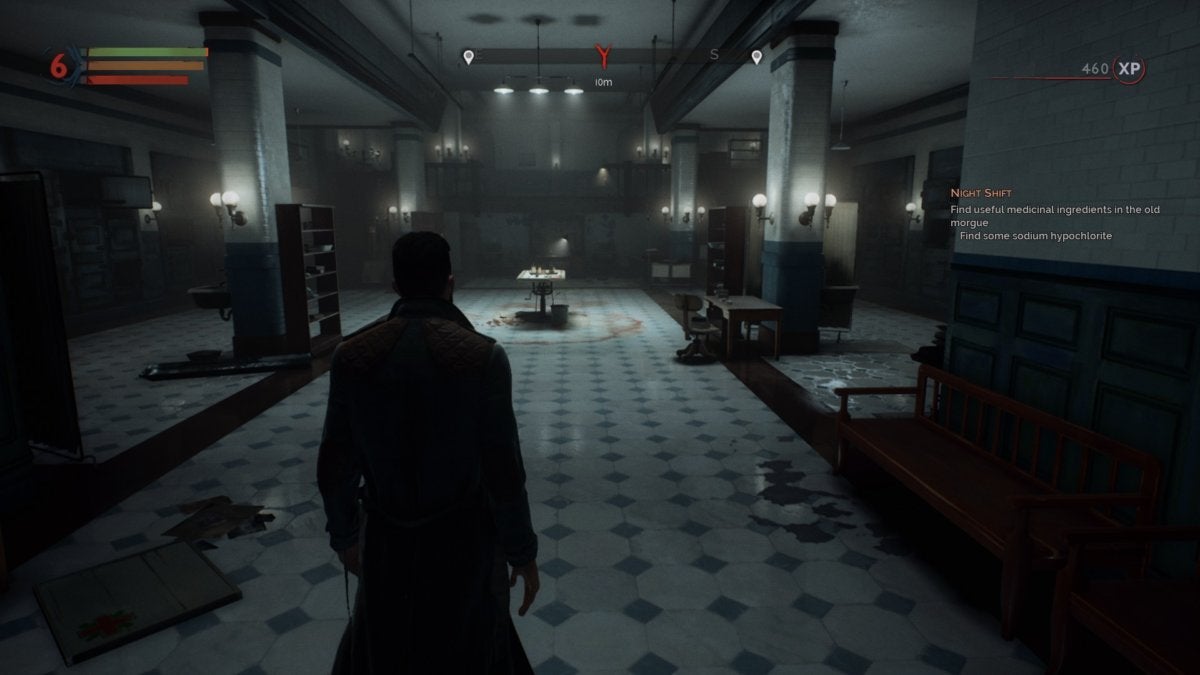 IDG / Hayden Dingman
IDG / Hayden Dingman You'll own to, if you want to go along London alive. Each district is its own composed community. Pembroke Hospital, for instance, is for the most part your fellow doctors and a handful of patients. White Chapel service is an impoverished and overcrowded labyrinth, tended to in secret past an underground medical examination dispensary. The Docks are where the criminals subsist, while West End is home to the heretofore-uninjured elites of London.
Thomas Reid is the fulcrum upon which it all shifts. Both doctor and vampire, you're injured between your motivation obligation to bring through people and a more primitive need to wipe out them. Which you choose, and when, has the power to drastically interchange how Vampyr plays out.
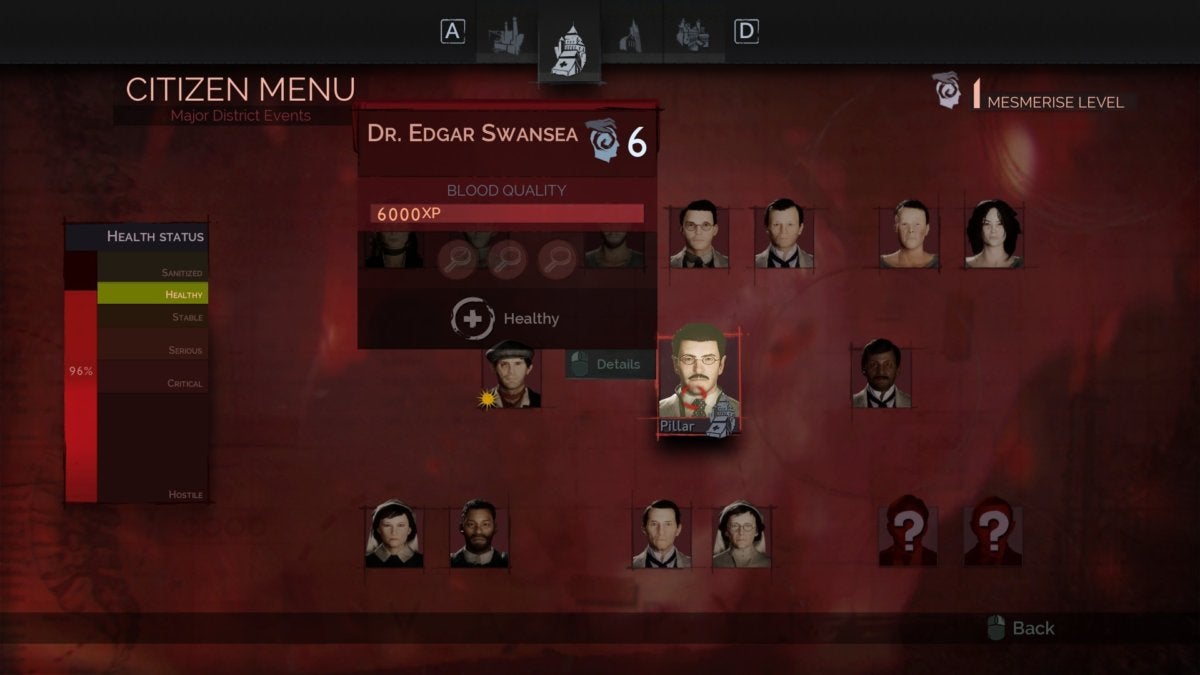 IDG / Hayden Dingman
IDG / Hayden Dingman There are maybe 20 people per dominion, each with a role (however small) in the residential district. Law-breaking boss, gun runner, topical anaestheti bruiser, bartender, then on. Despite looking like a one-third-person action mechanism game, most of Vampyr consists of casual gabfest with the locals. You'll get to know them, learn WHO's secretly discriminatory and who's in a forbidden relationship, who's smuggling drugs into the district and who's extorting local businesses.
I'll say this: Vampyr is terribly paced. It's a slow and plodding setup, and every hour I spent with it matt-up like-minded five hours, for some reason. It's like if Multitude Effect consisted only if of the Citadel field. All time you enter a territory for the first time, be oven-ready to spend two or trio hours just conversing with people, mise en scene up missions you won't get to for hours. A lot of these conversations are enceinte, but heaping them all along top of each other does them a disservice. I'm a story-centric player, and even I found my eyes glazing over at times.
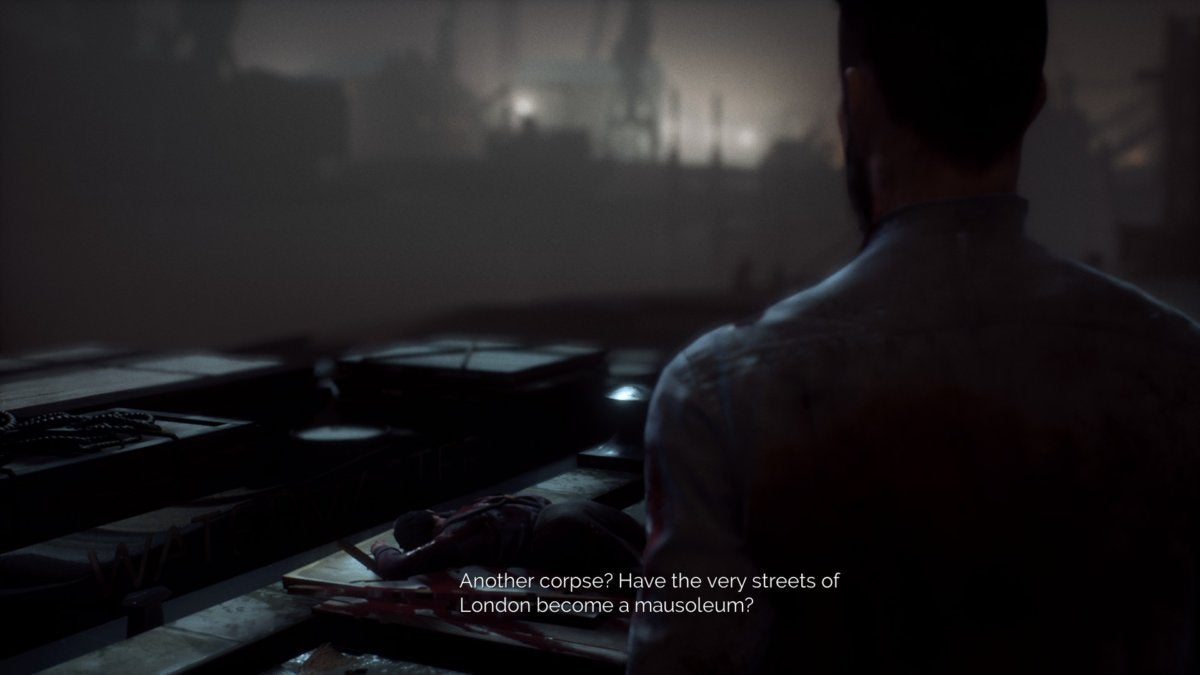 IDG / Hayden Dingman
IDG / Hayden Dingman The pretence is also a bit standing. Characters don't really have schedules. A few wander up and down random streets or have small written interactions, but just about are content to sales booth on the same street corner all dark long waiting for you to show up. The map is enormous and mazelike, and Vampyr doesn't make good use of information technology at all.
But you couldn't rich person Vampyr's lofty points without the sprawl. As I said, it's up to you who lives and dies in these communities. Sometimes that's direct inaction—people get sick and choke if you don't treat them promptly enough. Early times, IT's a self-conscious choice. The easiest way to gain Thomas Reid's lamia powers is to down citizens. So say you ascertain a local slumlord is a massive racist? Yeah, you stern lead him into the shadows and shoot down him, earning yourself approximately nifty new abilities in the work.
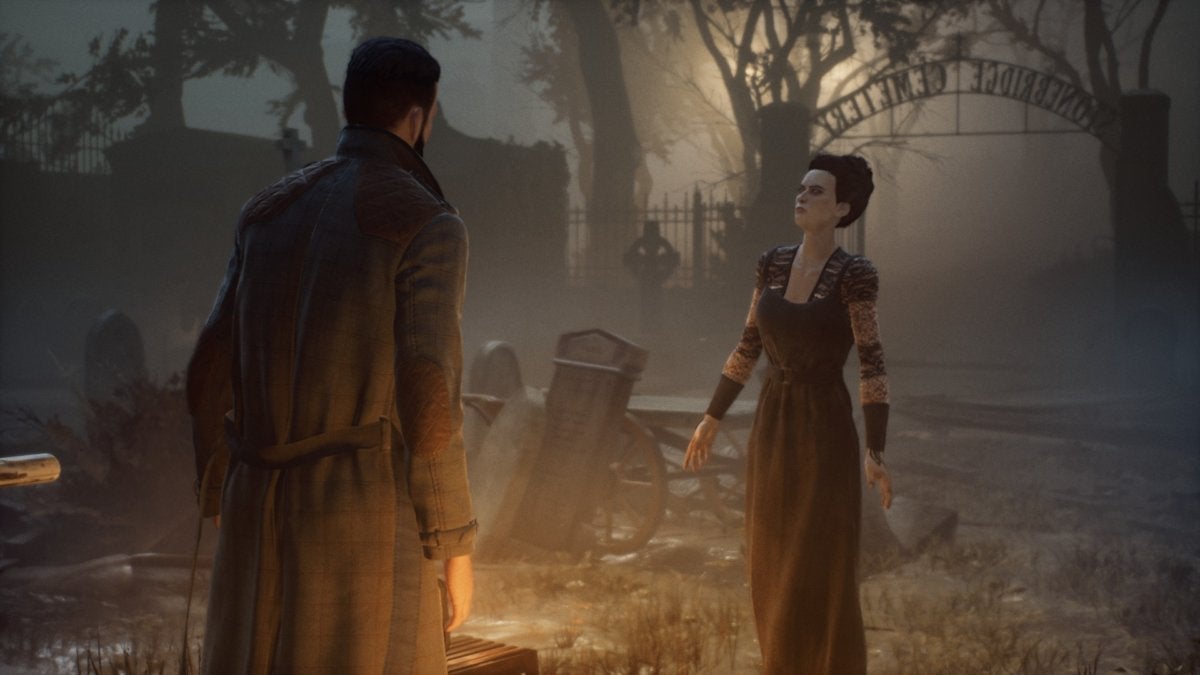 IDG / Hayden Dingman
IDG / Hayden Dingman "Wait, isn't that morally wrong though?" That's the halfway struggle in Vampyr. Maybe you kill the slumlord and the chain chemical reaction afterwards leads to even more deaths. Mayhap it just means you miss out on the ending of someone else's story—many of them are intertwined. Maybe you don't care and go full scorched-earth, killing everyone in an entire territorial dominion, going away the area to fester but becoming unfathomably strong in the process. Operating room you could play the Good Samaritan, healing all comers regardless of their own circumstances, trying to rise above Reid's nature—and making the game harder connected yourself.
Those decisions can also have far-reaching consequences for Capital of the United Kingdom, particularly when it comes to the "Pillars" of the community, centrical figures who play into the story in a larger way. An early mission has you discovery a secret clinic in White Chapel for illustrate—and then deciding whether you let that clinic continue operating, even if it means more problems for you in the long haul.
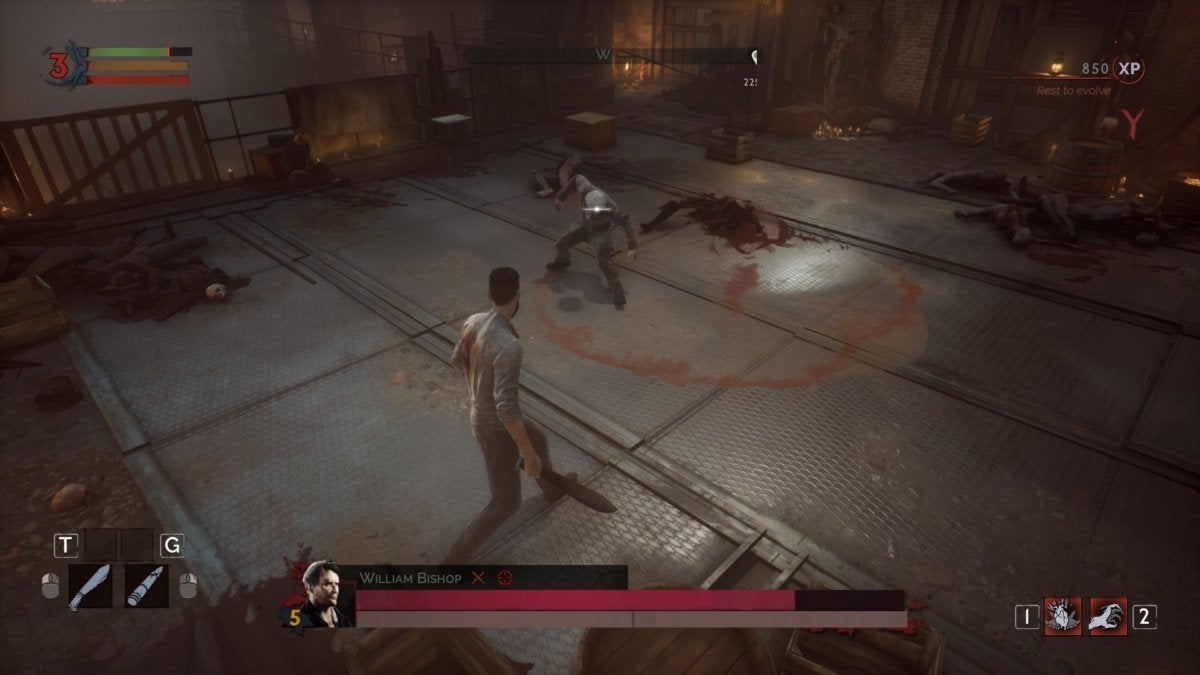 IDG / Hayden Dingman
IDG / Hayden Dingman IT's…complicated. And non always successful. A good deal of the consequences I incurred weren't tied slightly implied by the dialogue options I chose, and that's forever preventative—to find like you're not in control condition of your possess fate, surgery that you were impermanent on bad information. Sometimes characters react in weird ways too, operating theater Reid says something you didn't mean, or events X completely off rails.
And yet that's what makes Vampyr so interesting. Unlike most choice-centric games, where it feels like you're ripping hairs on how events play verboten, Vampyr's London feels ripe for geographic expedition. A character living or dying stool immensely commute, if not the central story, at least the circumstances in which the story plays out. It's not a perfect simulation. IT's a long fashio away from the dialogue-heavy "immersive sim" it so clearly wants to be, and yet what's here is full of potential. Vampyr's London is temerarious and daring, sometimes broken, but infinitely more interesting than the lifeless and inflexible towns that inhabit most games.
Derriere line
And that's why I've found myself attracted to Vampyr despite all its flaws—and there are many another. The combat system is clunky and unpredictable, not to quotatio well-nig unplayable with a mouse and keyboard. (Controllers work alright.) The map is au fond uneffective. The game is probably twice as long as it needs to cost. Conversations are static and colorless, even when the dialogue is well-written.
There are a good deal of rough edges, a mickle of barriers in the way of enjoying Vampyr. And yet the people who can remain through the problems? I consider they're real going to love life IT, the same way some swear by Alpha Protocol or Far Blazon out 2 or even the underivedWitcher. For everything information technology gets wrong, occasionally Vampyr breaks with convening in slipway exciting and (hopefully for other developers) inspiring.
Source: https://www.pcworld.com/article/402085/vampyr-review.html
Posted by: thompsonmoseve.blogspot.com

0 Response to "Vampyr review: Destined to be a cult classic - thompsonmoseve"
Post a Comment